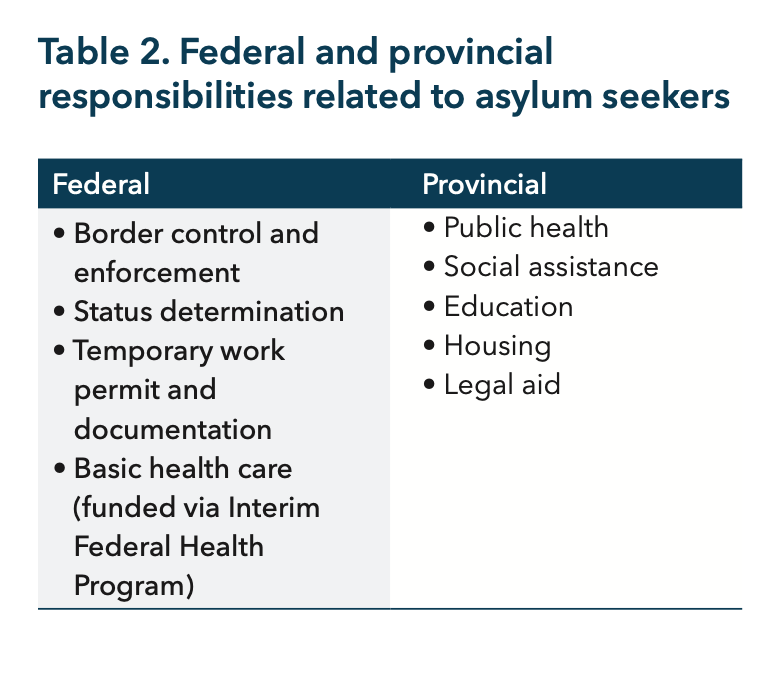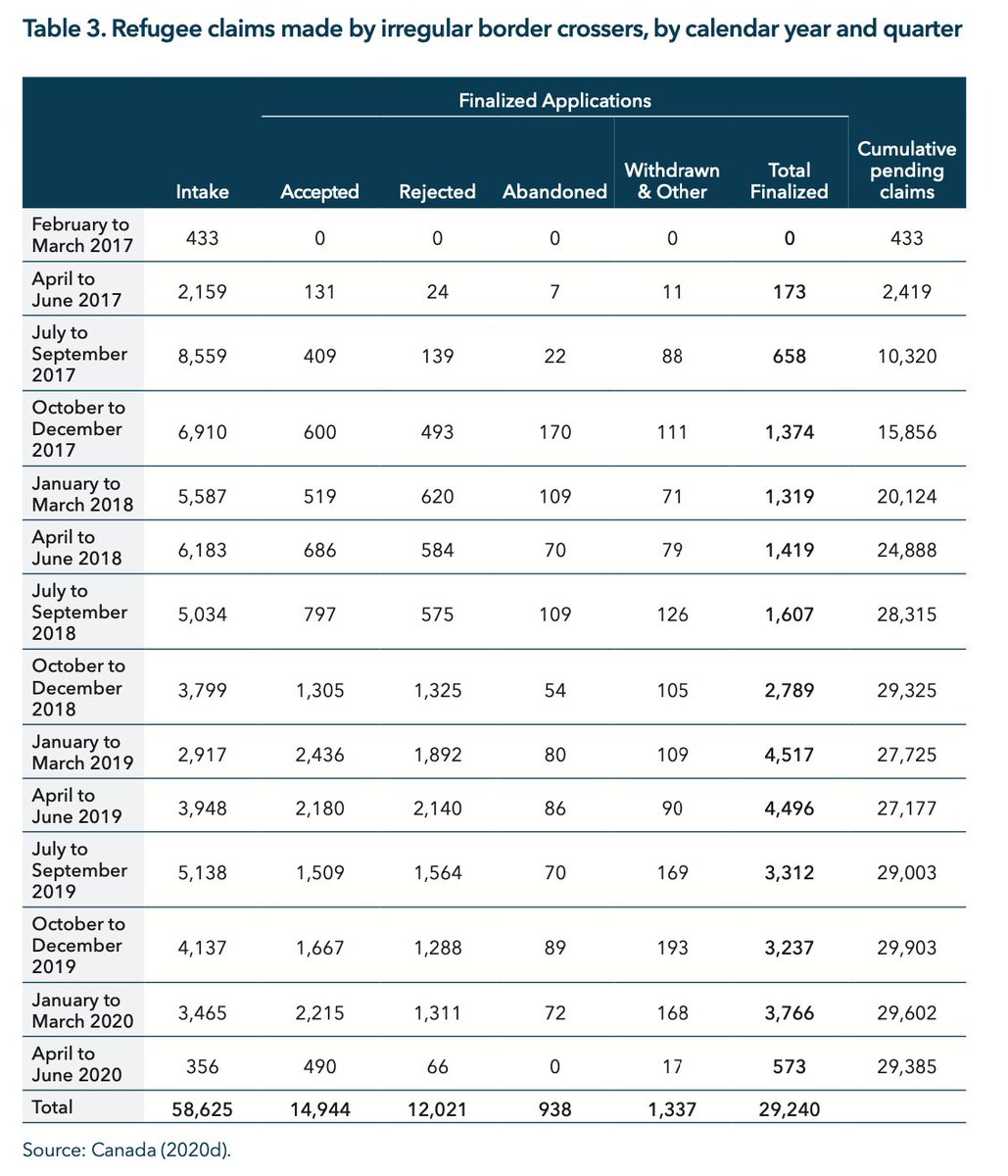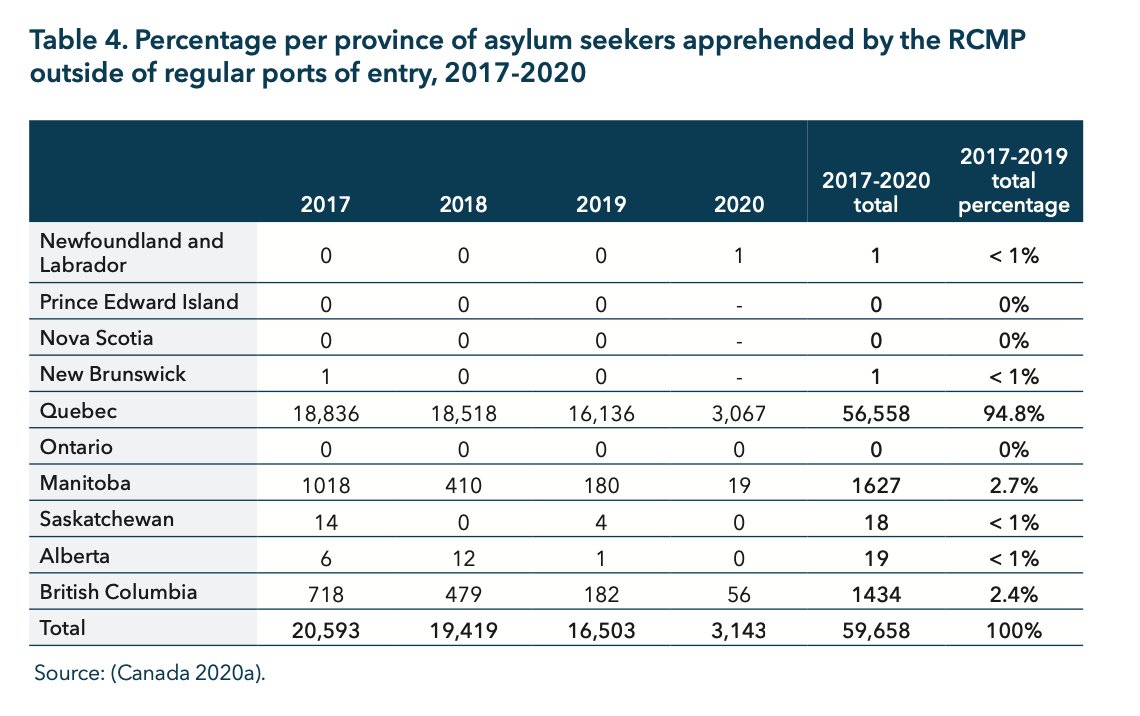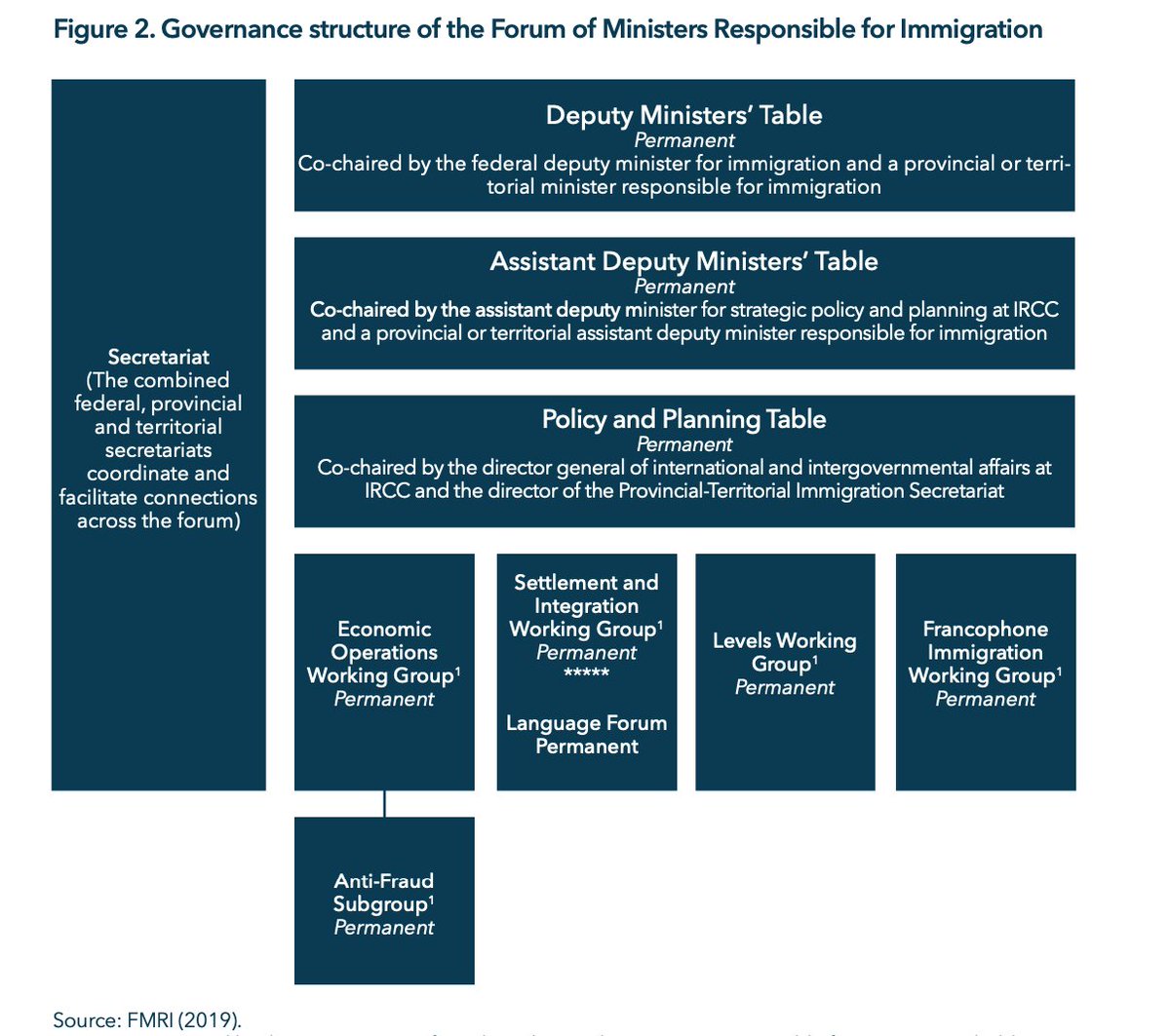Out today: a study of the impact of irregular border crossings on intergovernmental relations in Canada (with @RobertSchertzer, published by @irpp). Why this angle ? 

Of course, our starting point is that the #STCA is highly problematic and should be terminated. But the Canadian current government gives no indication of wanting to cancel it.
Our focus is on the intergovernmental nature of irregular border crossings since 2017 and we show that responding to this phenomenon - provide services to these humans and support them while they await status determination - is the job of both Ottawa, the provinces and cities
While a lot of public attention as been given to border enforcement - which is a federal jurisdiction - provinces and cities are significantly supporting asylum seekers while they await status determination. And since 2017, this delays for this have increased
Our study also points to the obvious, that some provinces (QC and ON) and some cities (Montreal and Toronto) are especially involved in responding to these population movements, somewhat challenging the trend of multilateralism in Canadian immigration intergovernmental relations
We document how elected officials and bureaucratic organizations have responded to this complex intergovernmental problem to ensure that service provision continues and to ensure stakeholder collaboration since 2017.
While Canada has experienced irregular crossings and spikes in asylum requests before, 2017 took officials by surprise (think housing asylum seekers at the Olympic Stadium). Since then, ad hoc institutions and funding have been set up, leading to increased collaboration.
And that is the most important lesson from our study: so far, the intergovernmental has been ad hoc. Yet, irregular border crossings won't go away (despite the relative COVID-19 hiatus) and asylum claims will likely increase in the future, given the global displacement crisis
So @RobertSchertzer and I make recommendations to ensure that Canada's immigration system does not fall into the same trap as other federations where increased refugee intake led to a race to the bottom and conflicts between governments. Here are the THREE most important:
1) Regularize federal funding arrangements: move from ad hoc solutions (e.g. Interim Housing Assistance Program) to predicable funding patterns so that provinces know how they will be compensated for services offered to asylum seekers.
2) Add asylum and refugee protection as a theme in immigration intergovernmental relation: so far, protection and asylum was not part of the tables of the Forum of Ministers responsible for immigration ( https://www.fmri.ca ) this should change
3) Include municipalities - especially large cities - in immigration intergovernmental institutions as EQUAL PARTNERS with provinces and territories: if they deliver key services to asylum seekers, cities cannot be relegated to the sideline. They need a firm seat at the table.
(this is not specific to immigration. On this, see @GabrielEidelman's recent piece "Reimagining the Canadian Federation through an Urban Lens" https://centre.irpp.org/research-studies/reimagining-the-canadian-federation-through-an-urban-lens/
Let me end by thanking all the busy officials who took time to speak with us and to teach us things, as well as the @IRPP and @charlesbreton for the help with this study.

 Read on Twitter
Read on Twitter





